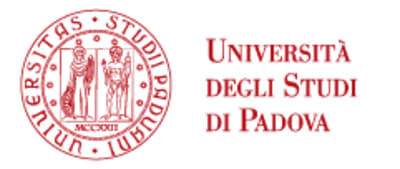
Master in Sustainable Chemistry and Technologies for Circular Economy
University of Padova

Key Information
Campus location
Padua, Italy
Languages
English
Study format
On-Campus
Duration
2 years
Pace
Full time
Tuition fees
EUR 2,739 / per year
Application deadline
01 May 2024
Earliest start date
01 Oct 2024
Introduction
The Master’s degree provides an extensive and highly interdisciplinary training program for professionals to be employed in companies or public bodies applying a circular economy model to production and services. Students will be trained on the whole value chain underlying a circular economy model, though a strong focus will be given chiefly to techno-scientific skills and competencies.
Admissions
Curriculum
Attaining a Master's degree in Sustainable Chemistry and Technologies for Circular Economy requires the successful completion of a comprehensive academic curriculum, totaling 120 ECTS credits.
1st year (60 ECTS): Green Chemistry; Thermodynamics and catalysis for the circular economy (Part 1: Thermodynamics of processes and materials; Part 2: Catalysis for circular economy); Operations &Supply Chain Management; Renewable energy technologies; Environmental European Law; Water resources management in the circular economy; Economics for the Circular Economy; Circular and sustainable waste management
Starting from the 2nd year, each student can opt for one of the following study tracks:
1 – Resources and product design and recycling
Materials design & selection for circular economy; Sustainable materials and recycling for the circular economy (Part 1: Sustainable mineral (geo)-resources and critical raw materials (CRM); Part 2: New plastics economy: polymers, biopolymers, and their recycling; Part 3: Recycling and transformation of inorganic materials); Circularity in biomass productions; 2 optional courses chosen by the student.
2 – Energy conversion and storage
Biorefineries and sustainable energy production and storage for circular economy; Sustainability strategies and energy economics (Part 1: Sustainability strategies and Innovation management for Circular economy; Part 2: Energy Economics); Life Cycle Assessment; 2 optional courses chosen by the student.
List of optional courses (two should be chosen):
- Advanced methods for sustainable processes and products
- Synthetic biotechnology
- Health and environment in the circular economy
- Innovative hybrid energy and energy storage solutions for the sustainable development
- Circularity in biomass productions (optional only for the study track 2 – Energy conversion and storage)
- Life Cycle Assessment (optional only for the study track 1 – Resources and product design and recycling)
- Psychology, policymaking, and education to a circular economy
- Understanding statistics of circular economy
Career Opportunities
Graduates work in product design and development, as R&D managers, raw materials supply and logistics managers, sustainability and Corporate Social Responsibility (CSR) managers, sustainability reporting managers, and Circular Economy managers responsible for communicating with all branches of the company and merging all parts of the value chain (resource purchase and supply, product design and production, recycling, waste management, logistics), as well as professional consultants.
Program Outcome
Credits: 120 ECTS
Master's Degree in Sustainable Science and Technology for Circular Economy
Scholarships and Funding
Merit-based scholarships
Padua International Excellence Scholarship
The University of Padua offers 53 scholarships to highly talented prospective students wishing to pursue a Bachelor's or Master's degree completely held in English in Padua.
Fee-waivers
The University of Padua additionally offers 100 full tuition fee waivers to students enrolling in one of its degree programs held completely in English.
Departmental scholarships
Some Departments offer additional scholarships to more than 30 international students
Galilean School of Higher Education Scholarships
The Scuola Galileiana di Studi Superiori (Galilean School of Higher Education) is the University of Padua’s school of excellence. It combines traditional university education with a series of special in-house courses comprising seminars and lectures by renowned international visiting professors. Up to four highly talented international students are selected each year.
Scholarships awarded by other national or international organizations
Scholarships awarded by the Italian Ministry of Foreign Affairs and International Cooperation MAECI
Every year, the Italian Ministry of Foreign Affairs and International Cooperation awards scholarships for studying in Italy to both international students and Italian students who are permanent residents in countries other than Italy (IRE).
These scholarships aim to foster international cultural cooperation, spread the knowledge of the Italian language, culture, and science, as well as promote the Italian economic and technological system throughout the world.
Grants are offered to pursue study, training, and/or research programs at Italian Higher Education Institutes, both public and legally recognized.
Loans for merit
The University of Padua has signed an agreement with the bank Banca Intesa Sanpaolo S.p.A, the savings bank Fondazione Cassa di Risparmio di Padova e Rovigo, and the Association ‘Friends of the University of Padua’. The agreement is aimed at providing EU students with a flexible borrowing option at advantageous interest rates, to be granted with no need for collateral, to bear expenses for education.
The loan will be granted following checks on the eligibility criteria of the student asking for the financing and prior approval of the lender.
Several scholarship options are available. Please visit the university website for more information.